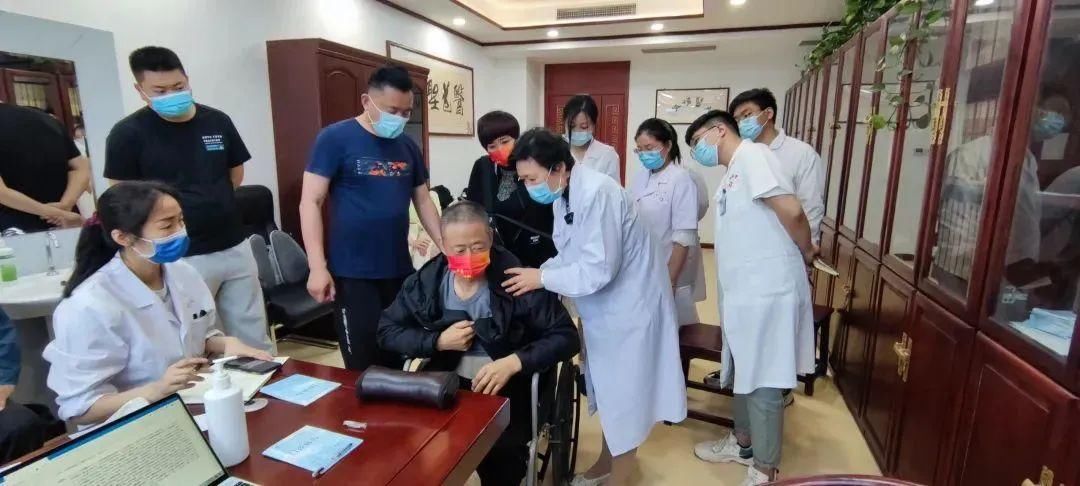Contributed by: Xu Hongwei, Henan Provincial Health Commission
Standardized training for resident physicians (hereinafter referred to as residential training) has various forms , but the most intuitive and core is the outpatient follow-up. This is “learning war in war”. It is an exercise that is basically close to the actual operation. It is also the most important and direct learning opportunity to learn the teacher’s experience and understand the essence of the teacher’s thoughts. Many years ago, I was an “undercover” resident at Peking Union Medical College Hospital, and wrote a series of first-line observations, one of which was “The Resident Physician’s Little Book”. Now reading some of the content, I still feel a lot.

Professor Zheng Yuling, a national famous Chinese medicine practitioner, led the outpatient clinic
01. What is recorded in Dr. Zhupei’s notebook?
During the short study period in Peking Union Medical College Hospital, I have the opportunity to experience the daily working atmosphere of clinical, education and scientific research in a first-class hospital in China. It is found that many residents often take out a small notebook from the pocket of their white coat and record anything at any time when they are organized by the department to discuss cases or conduct rounds with their teachers. Later, I communicated with a resident physician and asked him what the content was recorded. He said that it mainly recorded the key issues that the teacher reminded during the teaching process, the issues that he did not understand and needed to check the data later, and that he never did in the clinic. New problems encountered, as well as inspiration and insights that arise at any time.
“If you don’t record it in time and you are so busy with clinical work and study, more than 80% of these problems will be quickly forgotten. It also helps a lot!” Recording can effectively improve learning! This is the experience I summed up after groping for a long time in Xiehe Hospital. In fact, not only residents, but also many famous experts and professors in Peking Union Medical College Hospital carry a small notebook with them.
02. He has 56 small notebooks
Have read “Scholarship and Practice – Experience of an Old Xiehe Doctor” by Mr. Zhang Zhinan , one of the articles “How to Improve from Daily Clinical Work – Talking about the Accumulation and Arrangement of Data” talks about the method of accumulating clinical data. A small book to collect and record useful clinical data and questions at any time, such as special cases seen during outpatient or ward rounds, including successful cases and cases that failed diagnosis and treatment, when in doubt, write down the medical record number and very simple points and In order to remind myself to write it out in detail in my spare time. After the operation, if you find that your original judgment was wrong, you can use the records in the notebook to analyze why you made mistakes and what lessons you learned. In addition, the content of the record can also be your own experience, or you can It is the case that has been heard, especially the case involved in the discussion of the discharged case or the death case… New treatments, new drugs, and doses should also be recorded, and if you encounter similar patients and conditions in the future, you can refer to them.”
Mr. Zhang Zhinan also mentioned that the method of memorizing notebooks was not invented by him, but handed down by his teacher, Professor Zhang Xiaoqian. Professor Zhang Xiaoqian recorded a total of 56 small notebooks in his life. book! Therefore, in the outpatient teaching with teachers, the number of students is “standard”. At the same time, it is recommended to mute the phone or put it aside, and 100% of the time and attention should be used in learning with the teacher.